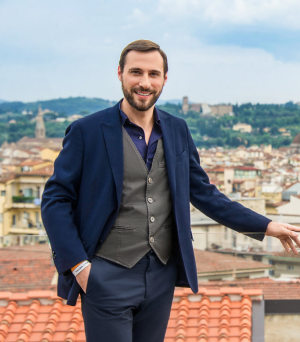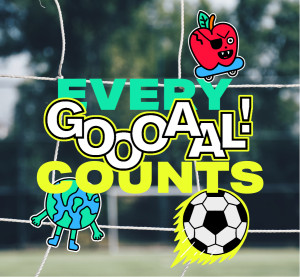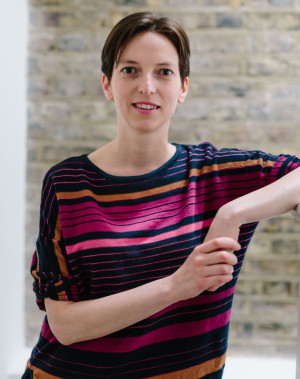In Conversation with Paolo Petrocelli
Lessons on cultural diplomacy and culture as a major force for change

This week we speak with Paolo Petrocelli. Paolo is a cultural and music diplomacy ambassador driven by the belief that culture, arts and education are a major force for growth, development and change globally. He has played a leading role in the cultural work of some of the most prestigious international organizations including United Nations, UNESCO, World Economic Forum and has forged bonds through music and arts in Europe, the Middle East, Africa, Asia and the US.
What is your particular area of focus right now?
My main focus is working with music institutions and cultural organisations in Italy, Europe and abroad. We are trying to innovate as much as possible to promote culture and performing arts.
The challenges we face have been accelerated by the COVID crisis, because we realised that innovation within cultural organisations is not just about shifting to social media, or setting up a TIKTOK channel - innovation is now connected to reality. It’s about how as an institution you project yourself into the future. And, of course, it is very challenging when you talk about innovating classical music, opera and the more traditional forms of performing arts. How do you project the incredible cultural heritage of these into the future?
It plays out very differently across the world. Take Europe for instance, the majority of the cultural organisations are dealing with the past, we have historical theatres, historical venues that we have to safeguard, their cultural heritage is one of the main assets of the cultural identity of Europe. If we invest time, energy, money to save the past, we don’t have enough energy, time and resources in building the future of our cultural industries. While in other parts of the world, they are taking a far more future-forward approach, keeping in mind that inside the art venue, you want to have a restaurant, a club, a shop - things that are very hard to implement in our cultural venues in Europe.
We have to consider that most of these countries are starting from scratch from a human capital point of view too. Countries like Saudi and UAE are investing so importantly in culture and giving the opportunities to their citizens to discover a new role and space where they can actually express themselves professionally and artistically. In Europe, we've done so much over the last 500 years that we are struggling to find a new perspective where we can actually launch a new phase of development for the entire cultural sector.
So, to be honest with you, it's a very exciting time to work in the cultural field, which can seem like a nonsense statement, especially during this crisis, but especially for our new generations of cultural managers trying to play their role right now, it's an interesting time.
What advice would you give to others trying to change things?
It's very important to find the balance in facilitating change in the very short term, because the majority of cultural organisations depend on public funds and you often can’t make long term plans for change. So they ask “what can we do tomorrow?” Sometimes the solution for tomorrow is actually a more complex and structured solution that sooner or later you need to work on. It's always important to support cultural organisations in finding very quick solutions that can be implemented in a relatively quick turnaround with a reasonable amount of resources, but it's also important to let the organisations understand they need to invest in a long term scenario for real change. This is especially the case at an infrastructural level, meaning HR, digital infrastructure, and when reconsidering their social mission.
Creativity is key to accelerating these change processes. It’s funny to see that many cultural organisations don't use creativity at a management level - meaning creative leadership. While you were expecting to find a lot of creativity in the cultural sector, when it comes to management and marketing communication, you find very traditional approaches, almost if they were scared of being creative, of being revolutionary in their approach to management, organisation, communication or fundraising. Sure, it's a complex challenge, but I believe one of the key solutions is to implement more and more creative leaders in our organisation. To have visionary managers that can also adapt from other sectors, approaches, strategies and models that we can apply to the cultural sector.
What is the change you’re most proud of being a part of and why?
For the last two years I have been working on a small but complex project with other colleagues and friends to promote music diplomacy with the UN Agency for Palestinian refugees. We supported them to develop a music education project for Palestinian students, and most of them are living in refugee camps or in very disadvantaged areas. They found themselves thinking like: wow, I really am an artist, I have the opportunity to speak for my people, I'm actually representing my people, as an artist, as a musician. This is an extremely powerful process, very interesting to go through from a management point of view and from a human-to-human perspective. These sort of projects can really make an impact, they can contribute to change. We know they’re not enough on their own, but they contribute, can inspire and they can help to advocate for certain causes. If they can open up new perspectives on things, that’s the most important.
In situations like this, we think about how culture and art are contributing to make us more human, and especially to make us more attached to what is so important and meaningful in our life. So it's always about how we use art, music and culture to make a positive impact in our communities in our cities. Sometimes the majority of big cultural institutions forget that they have to find the perfect balance between their social mission and their cultural mission, sometimes we are so much focused on cultural mission that we forget “why we're doing this, and for the benefit of whom?”
Is there a particular reference (a book, a poem, a person, etc) that you find particularly helpful in your work?
Cultural diplomacy is something extremely useful if you know how to use it. For example, the majority of the European cultural operators always have this attitude towards the Middle East, or Asia where they say: we'll show you how to make an art museum or a theatre. But often, they know very little about the culture of the other country. Think about China - you're dealing with a country that has thousands of years of cultural heritage and we know very little about them, while they know a lot about us because of the media.
Cultural Diplomacy is a way to facilitate interaction and cooperation. Looking at it from a commercial professional point of view, it can just sound like co-production - we create something together as joint forces and the end result is a cultural product that is made by my expertise and your expertise. But if you do it without commercial intent, because you genuinely want to create something that is the result of cooperation, on cultural and artistic levels, well, this becomes an opportunity to do something to reduce distances and barriers between people and countries. And if you apply this model where it is more needed, like in war zones or areas of conflict and tension, well this is a very, very useful tool. There are so many different examples of how music or art can facilitate this kind of social interaction especially at a community level.
Of course, you can't change the world by playing a song, you can't stop a war just by playing John Lennon’s “Imagine”. But if you work, day after day, at a local level, especially with younger generations around education, on social projects that create a real impact through cultural initiatives well, step by step, you're offering alternative tools to a community, to a society, and eventually to a country to overcome violence and cultural conflicts between different groups of people or countries. It is a very sophisticated form of diplomacy, and it also allows many professionals from the cultural sector to play a role, to be active citizens, to not just be great artists on the stage, but also to play a role when you are leaving the stage.



